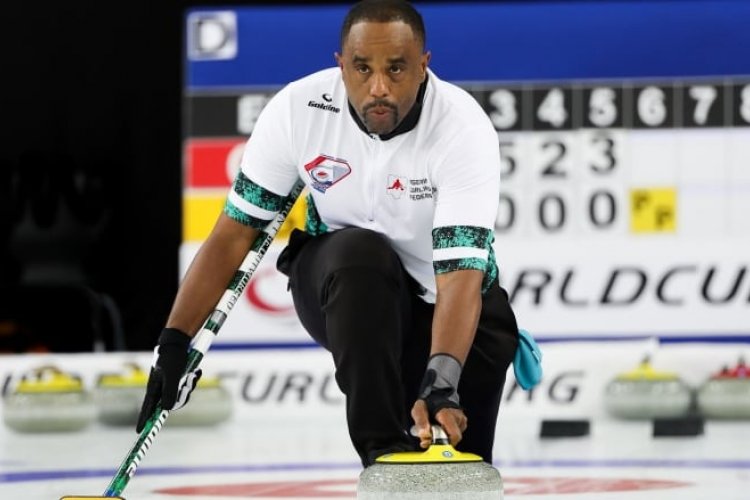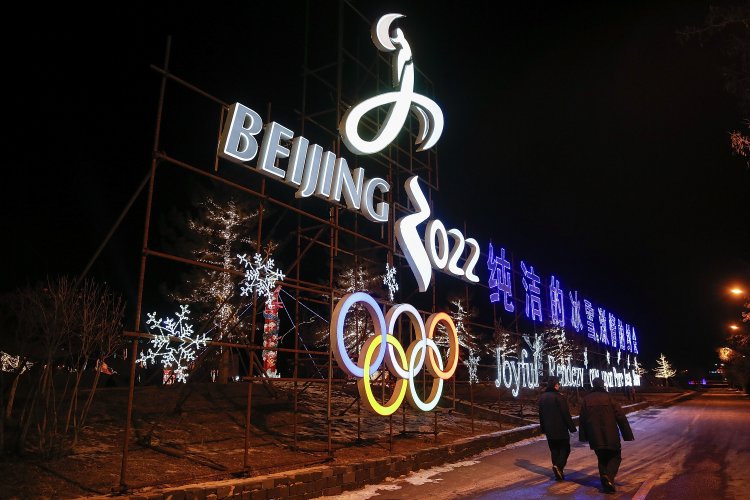OlymPicks: Sports Experts to Dish on the 2022 Games at the Bookworm, Mar 15
With the closing of the Pyeongchang Winter Olympics, the road is now clear for 2022 Winter Olympics buzz to build in the host city. To discuss exactly how China will be impacted by the upcoming Games, several Beijing sports experts will gather at the Bookworm (as part of the International Literary Festival) tonight (Mar 15).
Before the event, tonight's panel, which includes sports reporters like Mark Dreyer (moderator of the discussion) and Li Shuangfu, sports industry insiders like Shirley Hon (director of administration for at Kunlun Red Star Hockey Club) and Justin Downes (president of Axis Leisure Management), weigh in to tell us more about the prospects for winter sports in China.
The Beijinger: What do you think attendees can expect from the panel discussion at the Bookworm?
Mark Dreyer (founder and editor at China Sports Insider, and discussion moderator): We have a truly fantastic line-up of speakers. Shirley Hon is one of the top executives at Kunlun Red Star, the franchise that is almost single-handedly tasked with revolutionizing Chinese ice hockey; Justin Downes is about as knowledgeable a winter sports expert as you can find – he’s worked in China for a long time, but still manages to sit on the board of Canada’s national freestyle ski program; and Li Shuangfu, who became the first Chinese NBA reporter to visit the White House, then co-founded Lanxiong Sports, one of China’s most knowledgeable and opinionated media platforms. If you’re a huge sports fan, or even if you’re just a little curious as to what’s happening in this fascinating space, these three have the perfect combination of knowledgeable and personal experience to reveal what’s really going on behind the scenes.
Shirley Hon (Kunlun Red Star): Winter Sports is definitely one of the most talked about topics in the sports world right now and getting a lot of attention in China as we are counting down for Winter Olympic 2022 Beijing. The participants of the panel have more knowledge and personal experience of winter sports than most Chinese national. I think they are more excited about hearing the changes of Beijing in terms of Olympic preparation and how it might affect their daily life as residents.
Which Chinese Olympians impressed you the most at this year’s Winter Olympics in South Korea, and how do you think they will do at the next Winter Olympics?
Dreyer: China suffered a little because its traditional strength in the Winter Olympics has been short track, but its main rival in this discipline, South Korea, had the boost that the host nation always gets, edging out the Chinese in a number of races – and also thanks to a number of judging controversies, if you believe Chinese sports fans online! But despite only getting a single gold, the one positive for China is that they won medals in five different sports – a new high for China at the Winter Olympics.
Hon: For sure it will be the gold medalist of man short track speed skating Wu Dajing (pictured above). I admire his serenity and focus under such high pressure and eventually fought his way to the top. I am expecting to see more strong athletes like him in the next Olympics.
Li Shuangfu (Lanxiong Sports): Yes, Wu Dajing for sure. Chinese speed skating had so much trouble he before he won. He did it by conquering many difficulties. Wu is only 23 and he certainly will lead the national team in a good way.
Dreyer: Yes, many people would pick out Wu Dajing for winning that sole gold medal – and shattering the world record in the process – but, for me, it’s more interesting to look at someone like Geng Wenqiang who only took up skeleton in 2015, but still finished thirteenth out of 30 athletes. China is trying to qualify in every single discipline for 2022 and I think we’ll see some medalists come from some unexpected sports. The only question is whether 2022 is coming just a little too soon for China to achieve its ambitious goals.
Justin Downes (president of Axis Leisure Management): As expected, the Chinese team performed well in the freestyle (snow) events taking home four of China’s nine medals including three silvers and one bronze, with three medals coming from the Women’s side. The Team has a lot to be proud of and demonstrates that the Freestyle program in China is well on the right track for a bigger haul in 2022. In the coming years, I expect to see more young athletes gravitating to these disciplines and more programs being offered in the resorts to encourage budding Olympians to get involved. Well done Team China!

Do you think China will perform better at the next winter Olympics? Why or why not?
Hon: Yes! Absolutely! With Kunlun Red Star’s comprehensive player development program and integrating players into international league games, by 2022 China should have both stronger men’s and women’s hockey teams, and we are even aiming for the gold medal in women’s hockey.
Downes Without a doubt, China will perform better in 2022. Not only is there the obvious 'home court advantage' that always benefits the host team, but also the China sports system will unquestionably pour every ounce of effort into athlete development programs for the next four years. The Chinese athletes in many cases are already on the cusp of a breakthrough in many of the disciplines and the recent 'below average' showing will spur the athletic programs to significantly lift their games. The various disciplines have already started to mine talent from other sports and from the international market to ensure a deeper pool of elite athletes.
Li: Yes, Chinese people tend to push very hard when they’re the home team. The thinking is: "We can't lose face in front of the home crowd." So I'm 100 percent sure our athletes will do way better in terms of medals next time.
In general, how do you think the Winter Olympics will affect Beijing and China?
Downes: Beijing 2008 was looked at as China's “coming out to the world.” And in that sense, it was very successful. It signified China as a global powerhouse and brought much attention to the country across many categories. Beijing 2022 will be viewed much more as “an event for the people” – it will demonstrate that Chinese people will have a better quality of life, a healthier lifestyle, a more rounded and fun-loving outlook. China is building sport and recreation facilities at a globally unprecedented rate in order for the Chinese population to engage with the healthier sporting ways of life. Of course, the winter sports industry will thrive because of this development and promotional push, but it is all sports that will flourish as a result. We will undoubtedly see a boost in sports tourism spending, both domestically and internationally and a greater balance between 'work and play' than has ever been seen in the past. Overall it will be better for the health and well-being of the economy as a whole.
Hon: I think preparing for the Winter Olympic is a great opportunity to develop winter sports in China. It has opened up a whole new horizon to the market, especially to middle-class families who are open to new ideas and modern a lifestyle. From game watching to participating in winter sports, the Winter Olympics is not the goal, but only the starting point. With mass participation in winter sports, eventually, there will be more and more outstanding athletes being developed in China. Kunlun Red Star sees the needs of that, so the club is not only building professional players but also foresting development programs and tournaments from youths to semi-professionals while borrowing a lot of successful experience from North America and Europe.
Dreyer: I moved to China about nine months before the 2008 Olympics, so I saw a big build-up beforehand, then a tailing off in general sports interest, followed by another huge surge post-2014 when the government declared it wanted to make its sports industry the largest in the world. That push then received a significant boost in July 2015 when Beijing was awarded the 2022 Olympics. China was awarded the Games over Almaty in Kazakhstan – which is in fact a genuine winter sports town – partly because the IOC knew China would put on a good show and partly because the IOC and the international federations of various winter sports were all seduced by China’s claim that it could get 300 million people involved in winter sports, potentially transforming the global winter sports industry. In my opinion, that’s a ludicrously overambitious target that will never be achieved, but even if 30 million people take up winter sports, that’s still a huge number. The question is: How far along that road can China travel and how quickly?
"The 2022 Beijing Olympics and Sports Development In China" panel will convene at the Bookworm on Mar 15 at 8pm. Tickets are RMB 60. For more information, see the entire Literary Festival's schedule here.
Read all of our Olympics coverage here.
More stories by this author here.
Email: kylemullin@truerun.com
Twitter: @MulKyle
Instagram: mullin.kyle
Photos: Inside the Games, courtesy of Justin Downes, KHL, Xinhua







